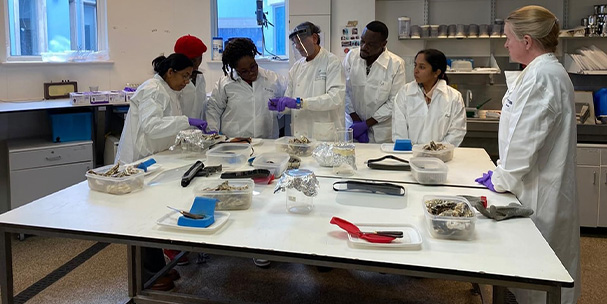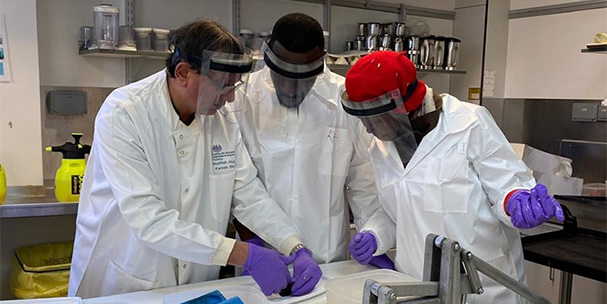Our Mandate
The Veterinary Services Department (VSD) is mandated to establish and implement policies, programs, and measures that ensure the health and welfare of animals in Ghana. Our work aligns with national regulations and international best practices. The mandate is derives from the Disease of Animals Act, 1961 (Act 83) as the competent authority for animal health management, animal welfare as well promotion of public health through food safety of animal food products. The department’s mandate has been further strengthened by various policies, most notably the National Food Safety Policy(NFSP), AMR Policy and Livestock Dev’t Policy and Strategy .
Our Mission
To safeguard animal health, improve food safety, and regulate the movement of animals and animal products in Ghana.


Our Vision
To enhance animal health and welfare, ensuring the safety and quality of food derived from animals while preventing the spread of animal diseases.
“Animal and Public Health—Our Concern”
Functions
The Veterinary Services Department (VSD) is responsible for safeguarding animal health, public health, and food safety through the prevention, control, and regulation of animal diseases and trade in animal products. Its key functions include:
Animal Disease Prevention, Control, and Surveillance
- Preventing and controlling the introduction and spread of notifiable and other animal diseases.
- Establishing and managing disease detection, surveillance, and epidemiological programs.
- Implementing disease control and residue monitory plan measure to maintain Ghana’s animal health status.
- Approving and updating the list of notifiable diseases.
- Developing early warning systems and emergency preparedness plans.
Regulation of Animal Health, Trade, and Border Control
- Conducting risk-based assessments for the import and export of animals and animal products.
- Issuing veterinary import and export permits, licenses, and veterinary health certificates
- Managing quarantine stations and enforcing border control measures.
- Inspecting live animals and animal products at border points to ensure compliance with national and international standards.
- Evaluating the equivalence of disease control measures of trading partners.
Research, Diagnostics, and Risk Analysis
- Conducting research on animal health, welfare, food safety and disease control.
- Enhancing laboratory diagnostic capabilities for improved disease detection and response.
- Performing risk assessments to safeguard the country’s animal health status.
Collaboration, Public Health, and Reporting
- Partnering with the Ministry of Health and other One Health stakeholders to control zoonotic diseases.
- Reporting disease outbreaks to regional and international bodies as required.
- Working with the Ghana Standards Authority (GSA) to set and enforce standards for animal products.
Public Awareness, Capacity Building, and Certification
- Educating stakeholders on animal health, welfare, and food safety regulations.
- Providing continuous training and career development programs for VSD personnel.
- Certifying and registering farmers, veterinary product importers and exporters, slaughter facilities, and veterinary service providers to ensure compliance with regulatory standards.
Policy Development and Advisory Services
- Advising the Minister on animal health, welfare, and food safety policies.
- Developing regulatory frameworks and implementing control systems for live animals and animal-related products.
- Issuing permits, licenses, movement permits, and international veterinary certificates.
Additional Responsibilities
- Carrying out any other functions necessary to fulfill the objectives of the Veterinary Services Department.
